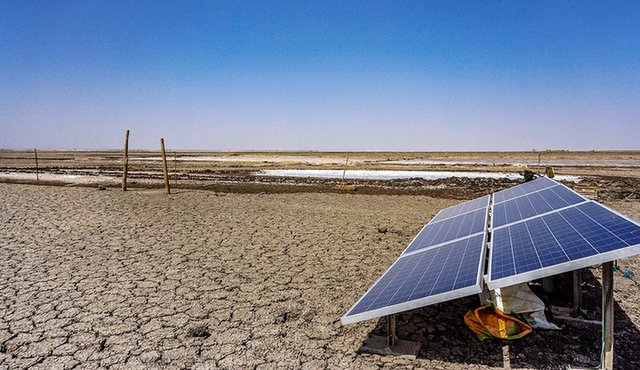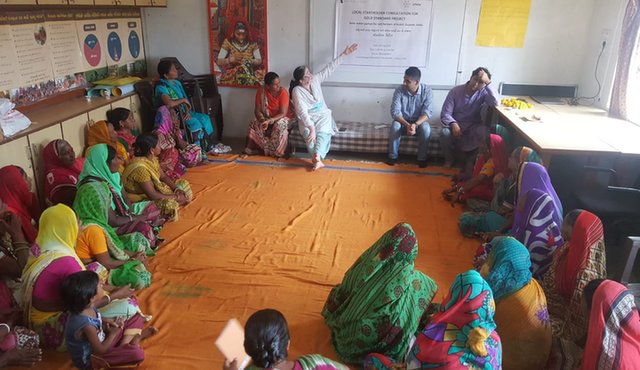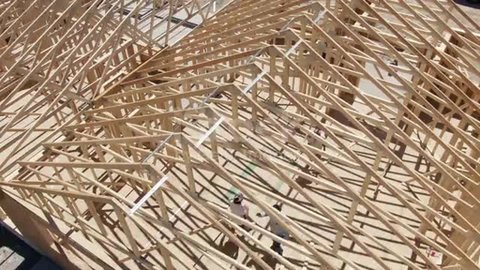Our social and environmental footprint
Our social &
environmental footprint
Laudes Foundation is committed to reducing our own carbon contribution, and supporting our partners in their efforts to do the same. At the same time, we seek to uphold commitments to gender, equity and social inclusion, and also support our partners in their efforts.
Our social and environmental footprint
Promoting Gender Equity and Social Inclusion
We cannot have a positive global impact at the intersection of climate and inequality if we do not enforce a gender, equity and social inclusion (GESI) approach, both within our organisation and in the initiatives we support. In 2022, we engaged consultants to help strengthen our partners’ safeguarding frameworks and provide technical support on how to embed GESI within their own programmes. We also strengthened our approaches to diversity, equity and inclusion at Laudes Foundation, and worked with partners to prevent violence and harassment in the workplace.
Organisational
policies
All Laudes Foundation partners who are in contact with adults at risk and/ or children as part of their work, are required to have a safeguarding framework to prevent harm. For partners with fewer than three employees and less capacity to develop their own framework, Laudes has developed a Code of Conduct which they must contractually adopt.
GESI and safeguarding support
In 2022, we provided 26 partners with support and resources to develop their own safeguarding policy and procedures. We provided a further three partners with technical support on how to embed GESI concepts into their own staffing, strategies and programming, so their work can advance the equity agenda. This included how to conduct a GESI analysis, how marginalised communities should be included in a just transition, and how programme strategies and initiatives should be designed to reflect their needs and demands.
Investigating and resolving safeguarding incidents
Our commitment to implementing safeguarding frameworks for each of our partners resulted in the reporting of three incidents in 2022 – two in Bangladesh and one in the UK. Every concern is taken seriously, handled sensitively and investigated promptly and, where incidents were confirmed, these were resolved in collaboration with our partners.
To secure the ongoing safeguarding of our partners and the communities they serve, a new service will launch in 2023, available 24 hours a day, seven days a week in the local languages of all countries and territories in which we work, designed to facilitate secure communication about suspected misconduct.
Fostering internal diversity, equity and inclusion
If we are striving to advance equity through systems change, we must live up to our principles and create a diverse, equitable and inclusive workplace for our own employees. While our recruitment and advancement policies and employee benefits already reflect this, we recognise that building a culture that values difference and prioritises equity and inclusion, requires continual improvement. In 2022, we evolved our GESI Community of Practice to be a safe space for our employees to raise questions about the internal operations of Laudes Foundation. We are taking further steps to advance diversity, equity and inclusion throughout our organisation in 2023.
Laudes Foundation demographic data
Gender ratio
Sexual orientation
Age
Diversity
Ethnicity
*Based on responses from 50 Laudes Foundation and Laudes India employees and contractors to a voluntary demographic survey in April 2023
Our social and environmental footprint
Towards a climate neutral organisation
Laudes Foundation is committed to measuring, reporting and reducing all emissions that result from our global operations. For the third consecutive year, Ecometrica produced Laudes Foundation’s carbon footprint assessment, which is based on the Greenhouse Gas (GHG) Protocol.
In 2022, our gross overall emissions were 657 tCO2e.
Our total emissions’ calculation included emissions generated by organisations where Laudes Foundation has an equity stake, including Fashion for Good (FFG) and CottonConnect.
Total
Laudes Foundation
Fashion for Good
CottonConnect
Laudes Foundation's emissions by activity
As a global organisation with a high-touchpoint approach with our partners, business travel, together with electricity usage at our offices, continue to represent the most significant proportion of our total emissions, with business travel accounting for 67.8% and electricity accounting for 20.7%.
tCO2e/year
%
Business travel
213
71%
Premises
45
15%
Homeworkers
25
8%
Commuting
13
5%
Company owned cars
4
1%
Activity
Scope
Total emissions per office location
(Laudes Foundation and Laudes India)
Designing our carbon offsetting strategy
While seeking further climate mitigation measures to reduce our carbon footprint, we are committed to offsetting the carbon emissions directly related to our energy consumption and business travel.
In 2023, we are developing a coherent approach for the decarbonisation of our operations with the goal of building a balanced portfolio of insets and offsets that are representative of our values and industry transformation focus. This will include clarifying and expanding our understanding of our Scope 3 emissions, including the footprint of our partners. We will also work with partners and peers to further understand the role philanthropy can play in the decarbonisation market to support the transition.
Embracing lower carbon
livelihoods
In line with Laudes Foundation’s commitment to working with communities and producers in India to embrace lower-carbon livelihoods, Laudes is again purchasing and retiring carbon credits from Self Employed Women's Association (SEWA) to offset our 2022 emissions.
Located in the Kutch region of Gujarat, India, SEWA’s initiative installs solar PV systems to operate the water pumps used by salt farmers. The salt farmers of the Rann of Kutch are an important part of the local food supply chain, producing more than 75% of India’s salt.



Salt farming is a carbon-intensive process, reliant on diesel to operate pumps. Solar-based solutions provide reliable, cost-effective and environmentally sustainable energy for decentralised and informal sectors.
When deployed, the benefits include improved livelihoods with increased productivity and incomes, increased social welfare and reduced spending on fossil fuel subsidies and centralised infrastructure.
Laudes offset: 657 credits
Annual average sequestration of 4,300 tCO2e
Towards a climate neutral organisation
Emission Scopes
Scope 1
Direct emissions from owned or controlled sources, including fuel to heat and cool our offices.
Scope 2
Indirect emissions from the generation of purchased energy for use in our offices.
Scope 3
Indirect emissions (not included in Scope 2) that occur in our value chain including business travel, employee commuting and home office energy use.
